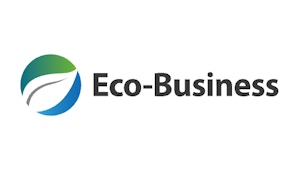Malaysia News

Carbon & Climate
Malaysian activists question Petronas sponsorship of UK postgraduate sustainability programme
As Big Oil draws criticism for delaying climate action, the British government's Chevening scholarship programme has come under scrutiny for accepting Petronas' sponsorship. Climate advocacy group Rimbawatch is concerned Petronas will exert influence through the scholarship; the Chevening team says scholars are not subject to any obligations.

Policy & Finance
Carbon pricing and ending fossil fuel subsidies will benefit Malaysia’s economy, says OECD
A new report recommends ending fossil fuel subsidies and implementing a carbon tax with transfers to support vulnerable, low-income groups could positively impact Malaysia's gross domestic product.

Carbon & Climate
Southeast Asia’s highly anticipated environmental rights declaration ‘watered down’, say critics
Civil society groups express concern over the draft declaration’s failure to adequately acknowledge “Indigenous peoples”, among other shortcomings.

EB Studio
Strong political will is instrumental in ensuring the success of ‘polluters pay’ mechanisms, including solutions such as deposit return schemes and mixed waste sorting, say industry players.
Carbon & Climate
Investors push for carbon pricing mechanisms, but developers resist
Malaysia Opinion

Food & Agriculture
La Niña: boon or bane for Southeast Asia’s food security?
The expected advent of the La Niña might portend a double-edged sword for affected regions.

Food & Agriculture
Small farms the key to Malaysia’s palm oil sustainability
These smallholder farmers can become "technopreneurs" in their own right if more incentives were provided for them to adopt technology and digitisation initiatives that can help improve sustainability performance.

The country’s recent National Baseline Assessment on Business and Human Rights report reveals an urgent need for human rights to be entrenched into Malaysia’s domestic laws.

Energy systems that rely on coal are not inherently secure as commodity market fluctuations can challenge affordability, while tripling solar and wind capacity in Asean would only negligibly impact system operations.
Food & Agriculture
What decarbonising palm oil could look like
Malaysia Videos

Food & Agriculture
Pandemics and the exploitation of wildlife — what’s the connection?
The origin of Covid-19 is believed to be a market selling live wild animals. Eco-Business asked Anbarasi Boopal of Singapore-based animal welfare charity Acres about the link between the exploitation of animals and pandemics, and what can be done to curb the illegal wildlife trade.

Improving energy efficiency could meet a quarter of Southeast Asia’s emissions reduction targets. Here is how efficiency could drive Southeast Asia's energy transition.

Southeast Asian nations are racing to bring clean, affordable power to their people, but one country is outrunning them all. How can states make their renewable energy transition a success?

In the first in a new video series where sustainability leaders interview each other about the toughest things about their jobs, Simon Lord of Malaysian palm oil giant Sime Darby Plantation went head to head with Pamela Mar of Hong Kong-based textile and apparel giant Fung Group.
Malaysia Podcasts

Carbon & Climate
‘Nobody wants to be the bad guy’: Authors of optimistic climate novel say don’t write off oil industry solutions
Former petrochemicals industry executives Steve Willis and Genevieve Hilton have written a novel set 50 years into the future that has a happy ending. They tell the Eco-Business podcast that the book is a pitch to carbon-intensive industries to try workable climate solutions.

Energy
Scrutiny, Scope 3 and Asian realities: Petronas sustainability chief on climate action at COP28
The oil and gas sector needs to cut operational emissions faster, Charlotte Wolff-Bye tells the Eco-Business podcast. But slashing fuel output won’t do for the Asian supplier, and it welcomes respectful debate at the climate summit.

Carbon & Climate
Seeing through the haze – is palm oil still to blame?
EB Studio
Transboundary haze pollution is back with a vengeance in Southeast Asia. The Eco-Business Podcast talks to RSPO CEO Joseph D'Cruz about what the palm oil sector can do to put out the peatland fires that have burned annually for four decades.

Food & Agriculture
Looking past the label: the nutritionists’ guide to plant-based milk
EB Studio
Plant-based milks have grown in popularity in recent years, driven by a combination of health, environmental and practical concerns. Nutritionists on the Eco-Business podcast, produced in association with Kerry, weigh the pros and cons of non-dairy milk.
Malaysia Press Releases

UNDP Malaysia
UNDP launches Malaysia Island Innovation Challenge

United Nations Economic and Social Commission for Asia and the Pacific (ESCAP)
ESCAP, FDI Center launch pledge to advance gender equality in foreign direct investment

Securities Industry Development Corporation (SIDC)
SIDC launches new certification programme in sustainable and responsible investment for the capital market
Malaysia Research

Eco-Business, supported by Boehringer Ingelheim
Moving towards a rabies-free Southeast Asia

Centre for Asian Philanthropy and Society (CAPS)
Public-private partnerships for social good

Eco-Business, in partnership with AWS Institute and Intel
Southeast Asia's cloud story: Impact, inclusivity, and growth
















